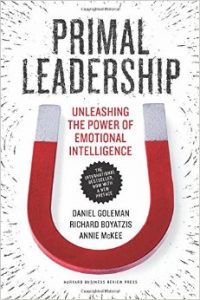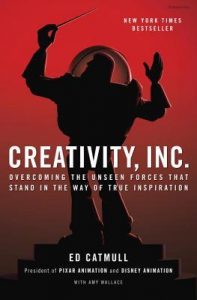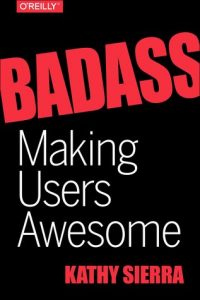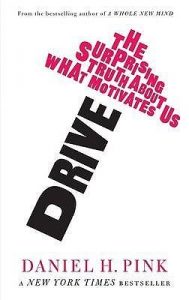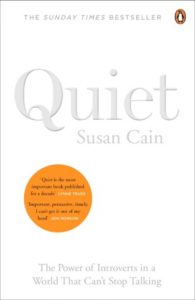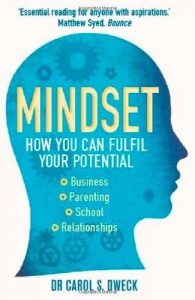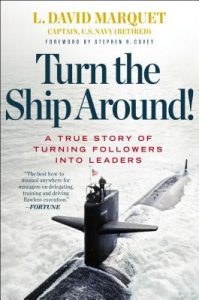My Favourite Non-fiction Books of 2016
A lot of my recent talks and chats at events have included references and quotes to the various books I’ve read the past year, and I’ve had more than a handful of people ask which books I would recommend.
About a year back I became a line manager, and as with every new discipline that I want to get good at, I threw myself into researching and reading as much as I could about the topic. Alongside that though, I also started trying to vocalize my thoughts on what I’ve been trying to do internally with our evangelism at FutureLearn. Both areas I’ve realized are grounded in similar questions: why do people do what they do? How do you encourage them to do specific things? What motivates them?
So this post is a roundup of all the “leadership-py” books I’ve read the past year (and have mentioned previously in my talks). Even if you’re not a line manager or a leader (yet), I think all these books give good insights into how people and teams work.
Primal Leadership by Daniel Goleman, Richard Boyatzis and Annie McKee
If you’ve just started managing or are interested in it and aren’t sure where to start with reading material, take a look at this book. Primal Leadership is all about how emotional intelligence is key to what makes an effective leader and gives a lot of practical examples of how to grow and apply your skills in it. The book highlights different leadership styles and the ways emotions are affected in each of them.
Favourite quote: “Imagine the styles, then, as the array of clubs in a golf pro’s bag. Over the course of a match, the pro picks and chooses from his bag based on the demands of the shot. Sometimes he has to ponder his selection, but usually it is automatic. The pro “senses” the challenge ahead, swiftly pulls out the right tool, and elegantly puts it to work. That’s how high-impact leaders operate too.”
Creativity Inc. by Ed Catmull
Technically I read this book last year, but there’s so much in this book that I’ve found useful this year. Ed Catmull is one of founders of Pixar and his book Creativity Inc is all about how the history of Pixar and how they created their culture there.
I started reading this cause I’m a huge Disney and Pixar fan, and it’s a fascinating insight into how their movies are created. Beyond that though, the book really focuses on what drives and enables creativity within teams, and I think it can be applied to any team. Catmull manages to elegantly capture the reasons why failure, candour and randomness are all things that every team should embrace and expect to happen. There are a lot of good ideas and good practices in this book and after reading it I came away feeling inspired and motivated.
Favourite quote: “Failure isn’t a necessary evil. In fact, it isn’t evil at all. It is a necessary consequence of doing something new.”
Badass: Making Users Awesome by Kathy Sierra
In Badass, Kathy Sierra explains how the best way to get your product being used by people, is understanding that it’s not necessarily about making your product more awesome, but that it’s about making your users more awesome. If they feel they are being badass when using your product, they’ll be more passionate and motivated to share what they can do with your product.
While the book is written from a product perspective, I realised that a lot of it can be applied to how we encourage our teams. It gives a lot of insight in how to keep someone motivated learning something new. I’ve specifically adapted it for encouraging evangelism in teams, but I think it can be applied to other areas as well.
Favourite quote: “On their deathbed, nobody will say: If only I’d engaged more with brands.”
Drive by Daniel H. Pink
Continuing with the theme of “what motivates people”, the next book on this list is Drive from Daniel H. Pink. In it he examines the intrinsic rewards that people seek, rather than extrinsic awards like money or owning stuff. It’s backed up with a lot of research examples and case studies, and it got me thinking about why people I know do the things they do.
Favourite quote: “People use rewards expecting to gain the benefit of increasing another person’s motivation and behaviour, but in so doing, they often incur the unintentional and hidden cost of undermining that person’s intrinsic motivation toward the activity.”
Quiet by Susan Cain
I’ve always considered myself a massive introvert and have blogged in the past about what it means to be a social introvert. I wish I had read Susan Cain’s Quiet much earlier, cause she really explains the differences between introverts and extroverts, and shows the way our society is built around extroversion.
Regardless of whether you’re a introvert or an extrovert yourself, reading this book will give you a better understanding of how our brains process the information in the world around us and how that can affect each person in different ways.
Favourite quote: “Everyone shines, given the right lighting.”
Mindset by Carol Dweck
Another book I wish I had read earlier is this one from Carol Dweck called Mindset. In it she examines the idea of different mindsets and I think my life might have gone differently if I had read it sooner. Dweck describes the idea of the fixed mindset versus the growth mindset.
The fixed mindset is the belief that your abilities are set in stone – you believe that you can learn new things, but that you can’t really change how smart or social or sporty you are. The growth mindset, on the other hand, is the belief that your basic abilities are things that you can change – people might differ in initial interests, temperaments and aptitudes, but everyone can change and grow through application and experience.
I noticed about myself that I’ve already switched from a fixed to a growth mindset in the past couple of years, and reading the book I recognized a lot that felt familiar to me.
Favourite quote: “This is something I know for a fact: You have to work hardest for the things you love most.”
Turn The Ship Around! by L. David Marquet
I picked up this book after seeing Marquet talk about this topic in this video. I’ve only just started the book, but I’m including it anyway cause so far it’s been an interesting read. Marquet tells his story of when he became captain of the USS Santa Fe, and started treating his crew as leaders, rather than followers. The result is an environment where everyone is encourage to take ownership and make decisions.
Favourite quote: “Don’t move information to authority, move authority to the information.”
Which leadership books have you read recently? Given the ones above, which books do you think I should read next?
